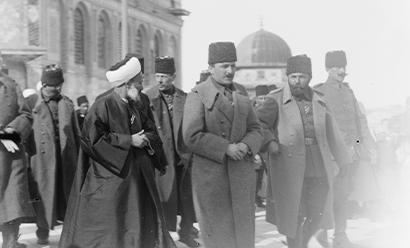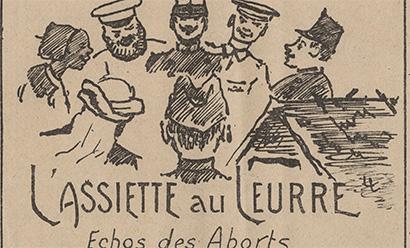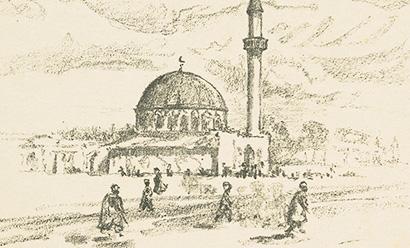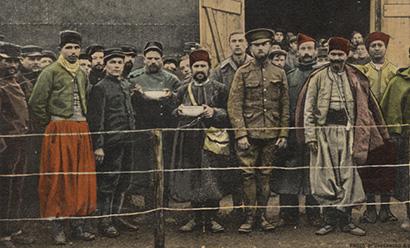Personal, National and Global Consequences ›
Global Repercussions
While the military and revolutionary goals of jihad propaganda failed. there were notable effects. Propaganda impacted other empires’ relationships with Muslim populations, and the jihad conceived in WWI changed the century to come.
"I fought the English at Gallipoli for an Ottoman homeland that no longer exists, and yet I continued living on the same land."
—Onbasi (Umbashi) Muhammad Ali Awad, Palestinian officer in the Ottoman Army from the village of Anabta who fought in Suez and in Gallipoli
France's Response
France was desperate to counter claims by Germany that they treated their Muslim colonial subjects with disdain. As a result, French officials engaged their own campaigns of propaganda. This included building a mosque in France for colonial solders, a direct reply to the mosque at the Half Moon Camp.
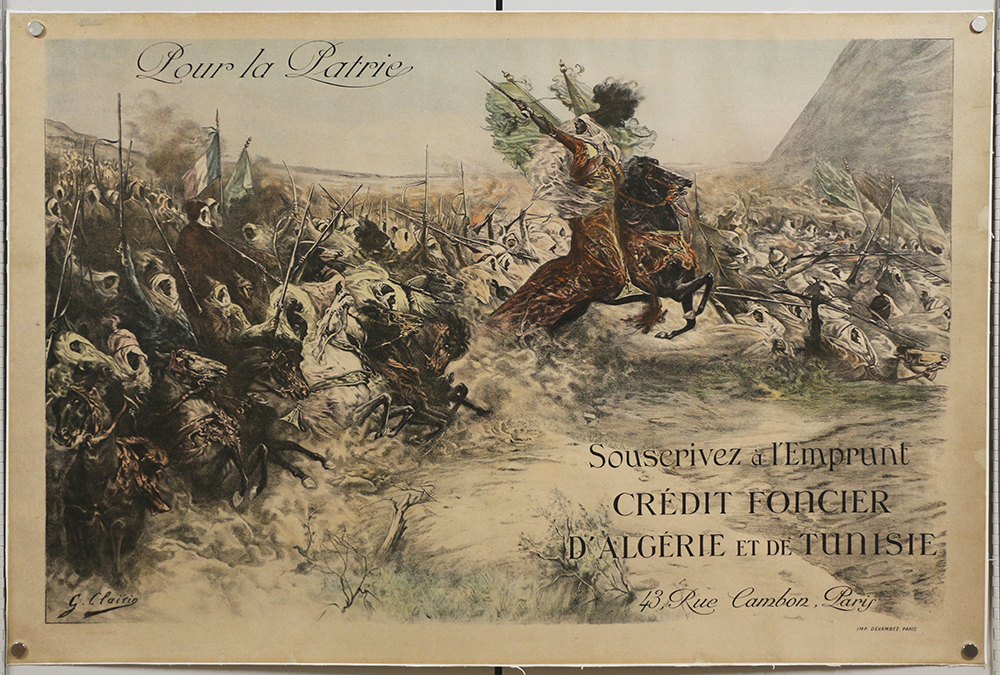
Lithograph by Georges Clairin. n.d. France. 2021.103.21.
French propaganda proclaimed esteem for North African soldiers fighting for France. This, they hoped, would both ease chances of a Muslim revolt and inspire more colonial volunteers. Much of the effort to support Muslim colonial subjects fighting for the empire was hollow, however, with no actual change to colonial rule or negative French attitudes towards Muslim subjects.
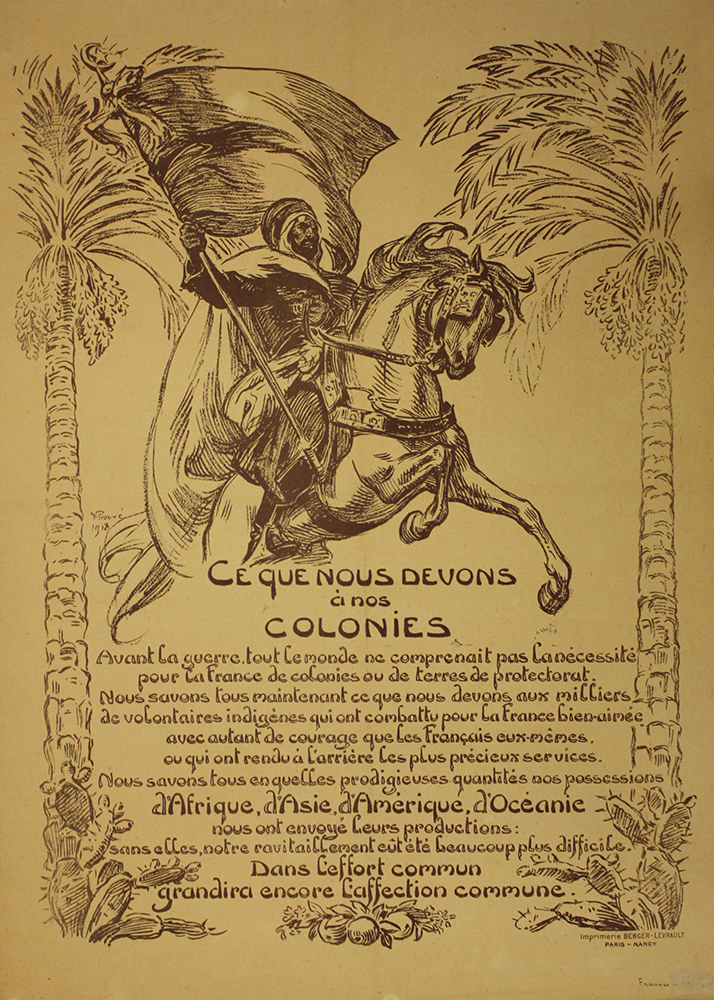
Lithograph by V. Prouve. 1918. France. 1920.1.392. National WWI Museum and Memorial.
Great Britain's Response
The British Empire reacted with force, as they had much to lose if their Muslim colonial subjects decided to revolt. If there was an uprising, Great Britain would have problems: the country would not be able to pull troops from India for European service, colonial workers could affect valuable trade, and any effort to stop the revolt would be expensive. Additionally, Great Britain might lose significant global power and influence.
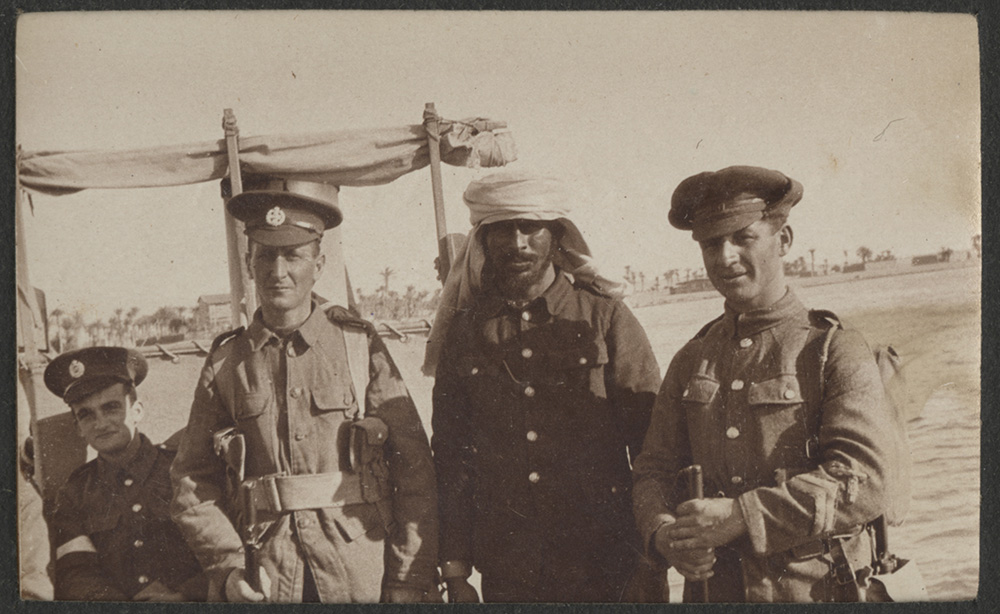
Print, Photograph. n.d. United Kingdom. 2019.17.2.1. National WWI Museum and Memorial.
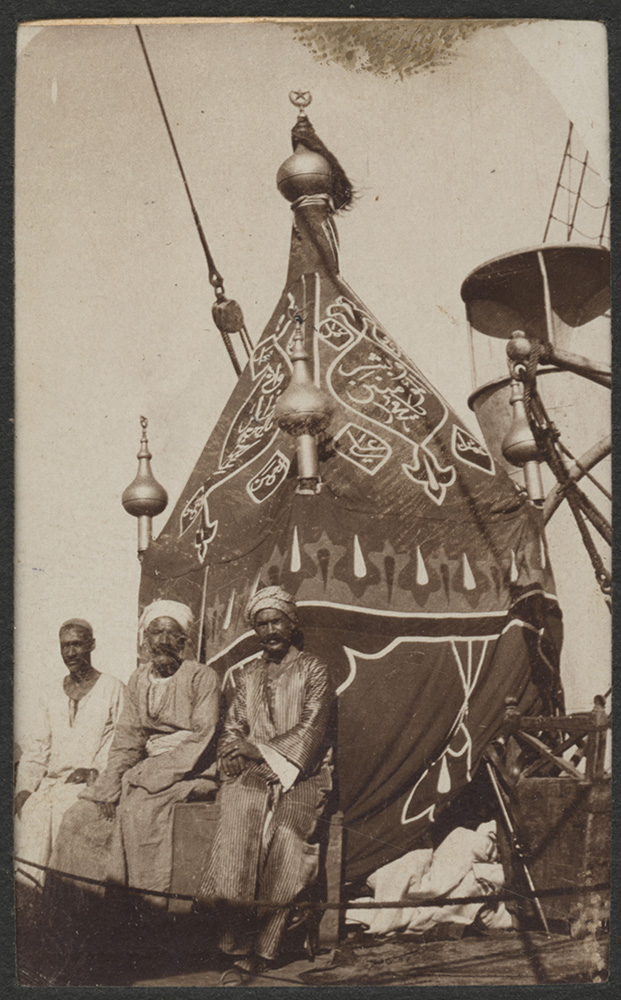
Print, Photograph. n.d. United Kingdom. 2019.17.2.37. National WWI Museum and Memorial.
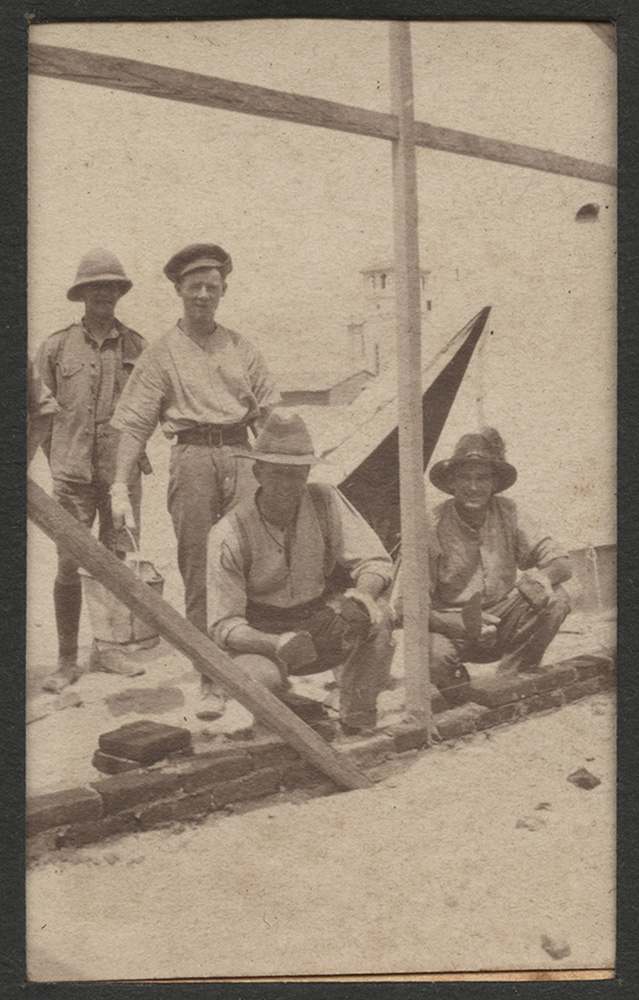
Print, Photograph. n.d. United Kingdom. 2019.17.2.1. National WWI Museum and Memorial.
The British responded with their own religious propaganda and military campaigns.
- Their strategy was to replace the Ottoman sultan-caliph and install the Sharif of Mecca as the highest-ranking Muslim authority. This would, in theory, give Great Britain control over the leader of the Ummah. It would also give them power over the destiny of the Middle East once the Ottoman Empire fell.
- In the course of this plan, leadership of Great Britain made many promises of self-rule and independence to leaders in the Arabian peninsula – most all of which were broken after the end of the war.
- To achieve these goals, the British diverted troops and materials away from the main battlefields on the Western Front. They sent them to the Ottoman front and deepened their engagement in the Middle East for the entire four years of war. This was a direct attempt to combat the German-Ottoman alliance’s jihad and control future leadership of Islam.
Both France and Great Britain fought to discredit the authority of the caliph. They hoped to undermine any authority the caliph (the Ottoman Empire), held over the Muslim populations in their colonies. As a result, the Allies went deeper and deeper into war in the Middle East, diverting over one and half million soldiers from the Western Front. This drew resources away from European battlefields and prolonged the war.
It also led to the Sykes-Picot agreement. This agreement at the end of WWI fractured and re-mapped the Middle East. It laid the foundation for unrest and conflict in the Middle East for decades to come.
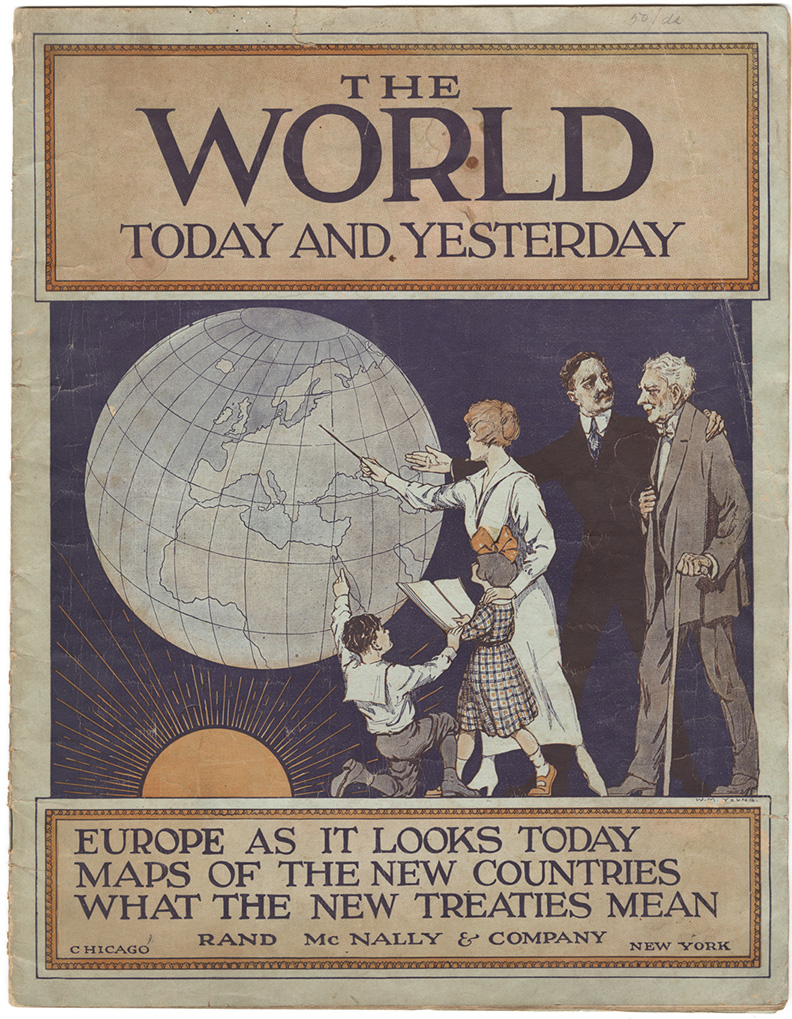
Cover and map from publication, "The World: Today and Yesterday". 1919. United States of America. 2006.86.63. National WWI Museum and Memorial.
Jihad for a New Century
Responding to a world of increasing European hostilities, the Ottoman Empire promoted pan-Islamism as a political tactic to gain global support and national unity. During WWI, pan-Islamism and pressure for a unified Islamic holy war forged new geo-political strategies and religious ideologies. In this way, the Young Turks leadership of the Ottoman Empire and Germany shaped what would be the global definition of jihad for the future century.
This redefined earlier notions of jihad in Islam, placing it firmly in a global sphere for the 20th century.
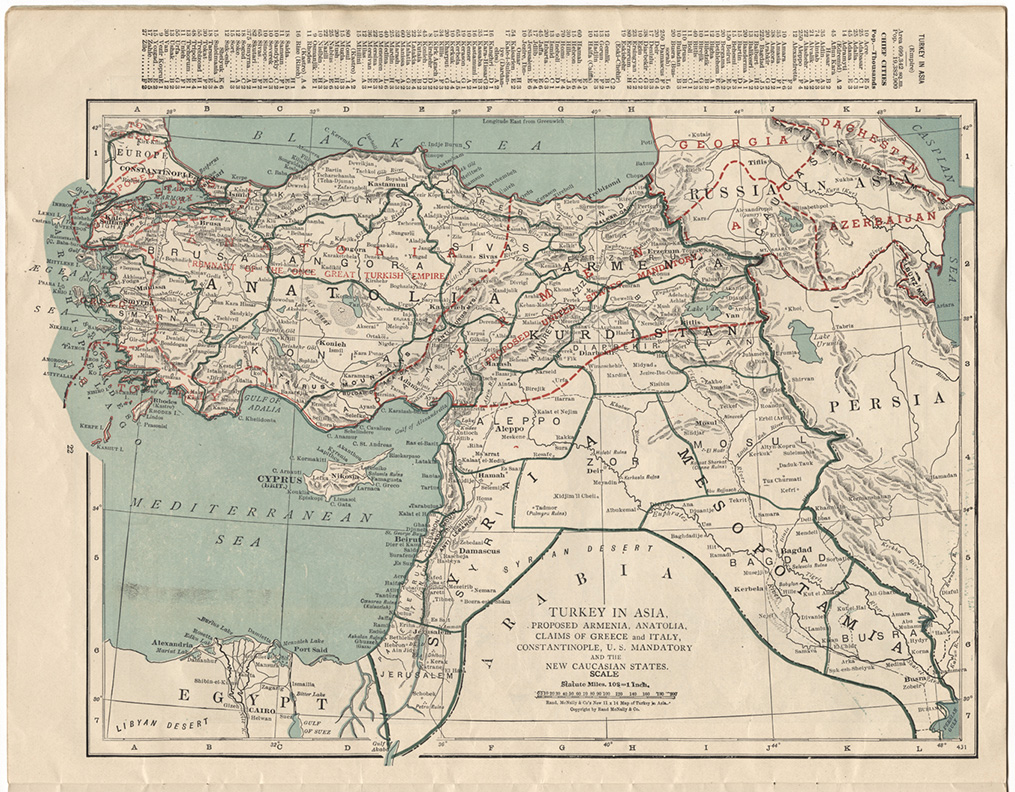
Cover and map from publication, "The World: Today and Yesterday". 1919. United States of America. 2006.86.63. National WWI Museum and Memorial.
